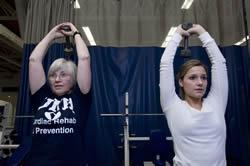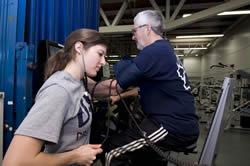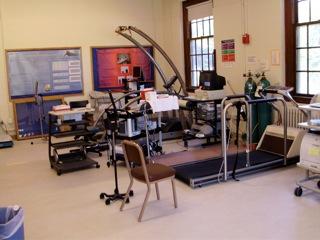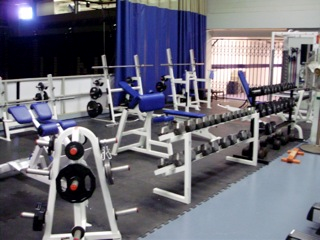The UNH Cardiac Prevention Exercise Program is designed for any individual over the age of 45 that has one or more risk factors, which may include high blood pressure, high cholesterol, diabetes, obesity, smoking and/or sedentary lifestyles. This program presently has room to accept more participants, and you can enroll at any time.

An aerobic exercise program for cardiac patients, including walking (or jogging if appropriate), cycling, rowing, treadmill walking or jogging, stair stepping, or cross-country skiing on stationary equipment. Individuals are encouraged to perform strength-building exercises. All activities are individually prescribed and participants are monitored by staff.

Community Testing services conducted by faculty and graduate students in the Robert Kertzer Exercise Physiology Laboratory. Some of the fee-for-assessment evaluations include blood lipid analysis, body composition analysis, submaximal and maximal graded exercise tests, and anaerobic threshold (lactic acid) testing.

An exercise testing and training facility available to interested benefits-eligible faculty and staff. Exercise equipment includes treadmills, elliptical trainers, cycles (upright and recumbent), step machines, rowers, strength stations, free weights and other core and balance training equipment. The UNH EFP provides a real world laboratory situation for graduate and undergraduate Exercise Science students.

A limited number of highly competitive graduate assistantships are available each academic year and are awarded to meritorious students exhibiting skill sets that coincide with Exercise Science Option & faculty needs. Graduate Assistants carry a full academic load and are expected to contribute 20 hours per week in the area that the assistantship is held, typically a) clinical programs; b) laboratory research; or c) teaching.
The Sport Studies program encourages it's students to participate in educational and enriching activities outside of the classroom.
